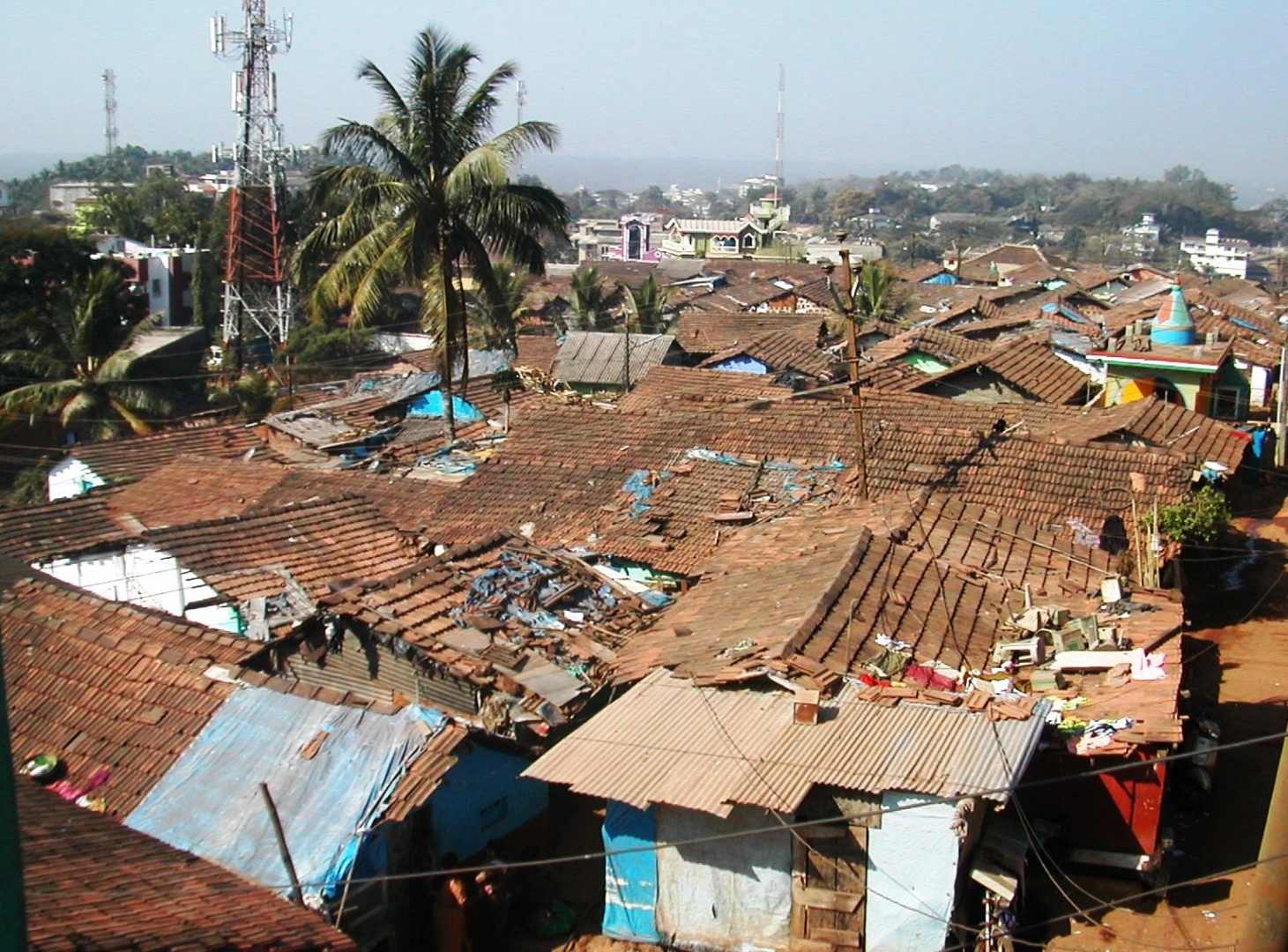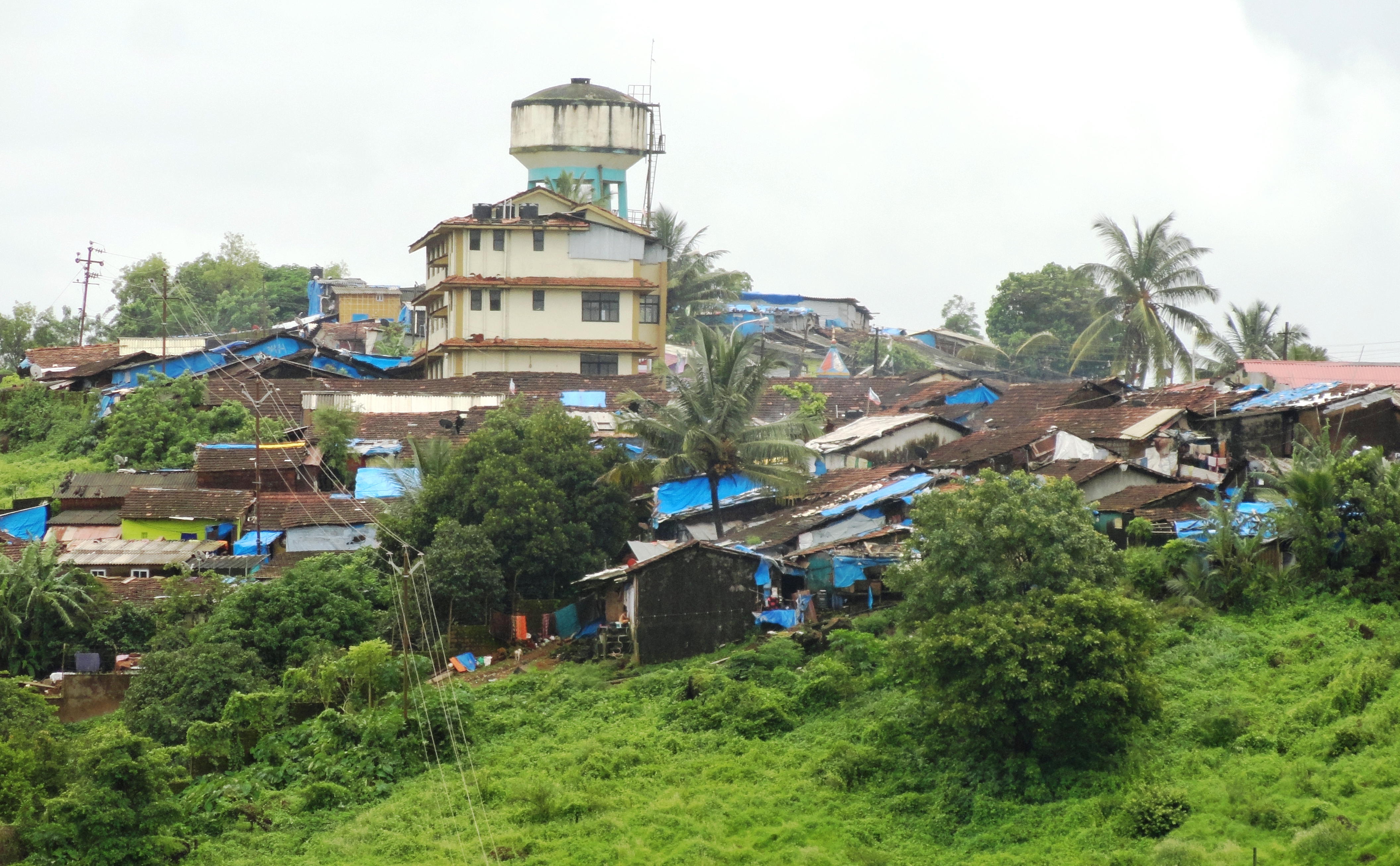Says will file writ petition after Governor’s assent, notification; prioritises retaining land over compensation; fears govt may refer Amendment to HC to weaken Comunidade’s position

Hutments dotting the Aquem Comunidade land at Moti Dongor, Margao.
MARGAO
The recent passage of an Amendment Bill by the Goa Legislative Assembly to amend the Code of Comunidades — aimed at legalising illegal structures — has reignited controversy over prime land at Moti Dongor and Talsanzor, owned by the Comunidade of Aquem.
This land, currently hosting over 300 illegal structures, spans more than 25,000 square metres. With a government-fixed base rate of Rs 20,000 per square metre, rough estimates peg its value at a staggering Rs 50 crore. The passage of the Bill has raised several serious questions: Will this legislation effectively dispossess the Aquem Comunidade of this valuable property? And what impact will it have on the decade-old legal battle between the Comunidade and the encroachers, which has been pending in the High Court since 2013?
Amid a lack of clarity on how the government intends to acquire the land and on the model of compensation, representatives of the Aquem Comunidade have reiterated their commitment to pursuing legal avenues to protect their rights.
Savio Correia, President of the Aquem Comunidade, labelled the Bill as illegal, accusing the government of attempting to usurp Comunidade land. “At present, our focus is solely on the legal battle to challenge this legislation in the High Court. Everyone is aware that the land at Moti Dongor and Talsanzor is prime land. However, we are currently not discussing compensation. Our single-point agenda is to contest this law,” he stated.
He added, “Our cause of action will arise once the Bill receives the Governor’s assent and a government notification is issued. The Aquem Comunidade intends to file a writ petition in the High Court to challenge the Amendment.”
Echoing these sentiments, Celestin Noronha, Attorney of the Aquem Comunidade, confirmed that the body is preparing for a legal showdown. “We are consulting with our lawyers to determine the best course of action and are also reaching out to other local comunidades to coordinate efforts in challenging the law,” he said.
Noronha emphasised the high value of the disputed land, noting, “This land is worth several crores, and we will do everything necessary to retain it. The government cannot simply dispossess the Aquem Comunidade, which is the rightful owner.”
There are growing concerns within comunidade circles that the government may refer the Amendment to the High Court in a strategic move to weaken the Aquem Comunidade’s legal position. Residents of Moti Dongor had obtained a stay from the High Court in 2013 on an order dated August 5 issued by the former South Goa Administrator of Comunidade to the 250-odd inhabitants to raze down the illegal structures and restore the land to its original position.
Eviction to exemption: Bill breathes new life into Moti Dongor shanties

MARGAO: The over-decade-old saga surrounding illegal structures in Moti Dongor and the neighbouring Talsanzor locality continues to unfold, with fortunes swinging dramatically for the residents of these densely packed shanties.
These settlements mushroomed over a decade — right under the nose of the authorities — bolstered by their utility as a steady vote bank for local politicians. However, the first serious legal challenge to their existence came precisely 12 years ago.
On August 5, 2013, the residents — primarily migrants — faced a major setback when then Administrator of South Goa Comunidade, Sangeeta Naik, issued demolition orders against illegal structures belonging to 210 petitioners. The land, owned by the Aquem Comunidade, was ordered to be restored to its original condition within 10 days.
In response, the affected residents moved swiftly, securing a stay order from the High Court, which provided them temporary relief and halted the demolition process.
However, from that day onward, the residents have lived under the looming threat of eviction, with the High Court yet to pronounce a final decision on the legality of the structures.
A political twist came on September 14, 2022, when Congress MLA Digambar Kamat defected to the BJP, raising new hopes among Moti Dongor residents. In the 2023 State budget, Chief Minister Pramod Sawant announced plans for land acquisition and rehabilitation of slum dwellers, including Moti Dongor.
Shortly after the CM’s announcement, land survey officials arrived at Moti Dongor to initiate a survey for acquisition and rehabilitation. The government then constituted a five-member panel, headed by the Director of Municipal Administration, with representatives from the Revenue, Survey, and Urban Development Departments. The panel was given a two-month deadline to assess the feasibility of land acquisition and resettlement.
However, this rehabilitation effort suffered a major setback on March 6, 2025, when the High Court, acting on a suo moto Public Interest Litigation, delivered a detailed judgment ordering the demolition of all illegal structures, including illegal constructions on Comunidade land, including those at Moti Dongor.
The verdict came as a major victory for the Aquem Comunidade, which has been battling for over a decade to reclaim its land from illegal encroachments.
Just when the demolition seemed imminent, the situation took another dramatic turn last week. The Goa Legislative Assembly passed a Bill to legalise illegal structures located on Comunidade land. While this move was a blow to the Aquem Comunidade’s efforts, it offered a lifeline to the illegal residents of Moti Dongor and Talsanzor — effectively halting the threat of immediate eviction and bringing new hope to thousands who had lived for years in uncertainty.
With legal, political, and community interests at odds, the Moti Dongor saga remains far from resolved. Whether this recent legislation will withstand judicial scrutiny — or be the beginning of a permanent resolution — remains to be seen.

